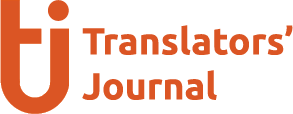Relying on freelance translation job boards is the worst advice you can follow if you actually want financial stability and creative freedom. Many think that platforms like ProZ, Upwork, and TranslatorsCafe are the “gateway” to a thriving translation career. But the truth is, that advice can quietly sabotage your income, your motivation, and your long-term growth.
The Reality of Translation Job Boards
Translation job boards like ProZ, TranslatorsCafe, Upwork, and Freelancer are frequently used by translators, some are more than the others. What these platforms do exceptionally well is they can connect freelancers with clients around the world. But many translators quickly realize that these platforms are not suitable for building long-term careers.
One of the biggest drawbacks of these platforms is the flooding of low-paying jobs that put you below living wage standards. A large number of projects listed on open job boards pay below professional market rates. Many offer $0.01–$0.03 per word, a fraction of what established translators charge directly.
Also, freelance gigs that show up in job boards are inherently a bidding trap. Translators bid against each other, and clients often choose the cheapest offer, not the most qualified one.
We are not suggesting you are not going to find great jobs on such job boards. Chances are you will but only if you strongly know when to say no. And you say yes only when it is to your favor. Besides, for beginners, these boards can serve as short-term training grounds which is a good thing. But again relying on them long-term just stops your income and growth.
Why Job Boards Often Waste Your Time
At first glance, job boards seem efficient. You log in, browse projects, and submit bids. Yet when you calculate the hours spent chasing leads, the equation rarely adds up.
- Low-paying gigs dominate: Most listings target price-sensitive clients, not quality-driven projects. The volume of cheap offers pushes rates down for everyone. If you’re serious about professional translation, you’ll spend more time rejecting projects than accepting them.
- High spam volume: Many boards host spam, irrelevant, or fake listings. Reposts, vague project descriptions, and unclear deadlines waste hours that could be spent on billable work.
- Longer application process: Between writing cover letters, tailoring samples, and waiting for responses, translators spend countless unpaid hours. So when the actual projects are smaller, all this effort and time even when successful gives minimum return.
- Little career growth: Job boards reward speed and luck. The translator who comes first or bids the lowest gets the project. Your niche expertise and skills are not rewarded as they should be.
Other Hidden Costs of Using Translation Job Boards
Even when you manage to land projects, there are costs you don’t see upfront.
- Platform fees and commissions: Most job boards charge 10–20% per project in fees, cutting into already low rates. Some require paid memberships for “premium visibility,” which rarely guarantees results.
- The opportunity cost: Every hour spent bidding is an hour not spent building your brand, improving skills, or reaching direct clients who pay better. Over time, this lost opportunity compounds.
- Stress and burnout: Constant rejection, unpaid bids, and low client trust can lead to mental fatigue. Translators report burnout from treating every project as a lottery ticket.
- Damaged reputation and rate pressure: Working with clients who expect low prices makes it harder to raise your rates later. The market begins to see you as a “cheap translator”, not a professional service provider.
Smarter Alternatives for Translators
1. Build your personal brand and audience: Build an audience around your personal brand. This starts with a website and consistently showing your work.
2. Reach out directly: Cold outreach to agencies, publishers, or businesses in your niche beats random job board bidding. Personalized emails, done right, yield better response rates and stronger client relationships.
3. Use LinkedIn as Your Go-To Social Media: Share your expertise, discuss industry insights, and connect with potential clients. Over time, consistent visibility positions you as an expert.
4. Join In-house position: If you are not ready to operate sustainably as a business or you want stability, join an in-house position. This will give you hands-on experience without burning out as well as you will get stability and the room needed for your next move.
P.S. If you are looking for an in-house position either as a linguist or a non-translation language industry role check out our curated list of in-house jobs. Subscribe to Weekly Job Window.
Competition is for losers, everybody loses who competes on price. Don’t get trapped in this gig race. You don’t need to chase low-paying listings to build a career. You need clarity and actions to choose better clients and better paths.
To move forward, start by doing these three things:
- Build your personal brand and showcase your work online.
- Reach out directly to serious clients instead of waiting for listings.
- Choose in-house experience if you need stability before going solo.
Are You Looking for Jobs in the Language Industry?
If you are looking for in-house jobs, you should check out Weekly Job Window.
Every week, we handpick in-house jobs for translators, interpreters, linguists, writers, editors, and localization professionals so you can stay updated without searching hundreds of listings spread across the internet.
You can access the latest jobs of the current week here. Feel free to bookmark it as well.
To get the full list every week to your inbox, subscribe.



